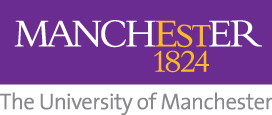By Hannah
Last week Jennie (our Projects Manager) and myself presented at the Archives and Records Association (ARA) conference, here in Manchester. Our paper was called:
Telling the Whole Story: Community partnerships and collection development in the Legacy of Ahmed project

We’ve been thinking a lot recently about the way we work, as an organisation that undertakes both outreach projects and heritage collection work*. Not only do we give equal weight to these areas of our work, the two have a symbiotic relationship: The outputs of community and schools-based projects (such as oral history interviews, teaching resources, donated ephemera, creative works and publications) are accessioned into the library and archive collections**, ensuring that community voices are preserved for the long-term, but also building a bank of resources to support ongoing outreach work – both our own and other people’s.
It’s the reason we call ourselves a ‘resource centre’ rather than an archive or library; our collections have always been intended to have contemporary, active and practical purposes.
Our paper was a chance for us to articulate this and share with fellow professionals some of the lessons we learnt about project-based collecting from our recent Legacy of Ahmed project. The project aimed to commemorate and document the impact and positive legacy of Ahmed Iqbal Ullah’s tragic death, primarily through reminiscence work and collecting oral histories with members of the local Bangladeshi community, activists, officials, community workers and Ahmed’s friends and family.

Jennie talked about the importance of building relationships and community partnerships in a project like this, allowing us to collect meaningful and authentic testimonies. But she reflected that it also meant the project went down lots of unexpected collecting avenues. For example the vast array of papers, photos and ephemera that were donated alongside oral history interviews, including a substantial organisational archive from our project partner Ananna, the Manchester Bangladeshi Women’s Organisation.
I then talked about the challenges of processing the material into a coherent archive. There was a far greater volume and variety of material than expected, including historical and contemporary material, a substantial amount of which was digital. We had built time and cost into the project for archiving, but not enough.
What we hadn’t allowed for was the time it would take us to reconceptualise this material as an archive telling the story of Ahmed’s legacy, rather than just seeing it as project outputs. This required iterations of appraisal and negotiation between the project and the collection team, as we tried to create a focused and coherent archive that would make sense to future generations, but that reflected the collaborative and organic nature of the project itself.
Me and Jennie had many conversations over the disposals box, as she explained to me the significance of a letter or leaflet that seemed at face value to be outside the scope of the collection. Because she knew the donor and their story, and that the letter was from such-and-such a person, who is important because… and it’s about a matter that is referred to in someone else’s oral history interview, which is significant because… and so on. All of these layers of meaning and cross-cutting references are what emerge during long-term, partnership-based project working. They are vital to the telling the whole story, but many of our archive processes, which are based on more traditional methods of donation, are unable to capture this information.
The conference was a really useful opportunity for us to collect our thoughts and test out ideas with a wider heritage sector audience. Some of the challenges we talked about seemed to resonate with others in the room, so hopefully we gave them some food for thought too.
Back in the office we’re now looking at how we can adapt our archive documentation to include some of this soft ‘metadata’, and how we can better dovetail the active collecting phase of projects with the archiving phase. We don’t have solutions to these challenges yet, but project-based collecting is only going to increase for us over the next few years, so watch this space for more.

* By ‘we’ I’m actually referring to our two sister organisations, the Ahmed Iqbal Ullah Race Relations Resource Centre, established at the University of Manchester in 1999, and the Ahmed Iqbal Ullah Education Trust, an independent organisation established less than two years later, to lead on engagement and outreach work using the collection. For the most part we work as one team on the shared principles of celebrating cultures, recording hidden histories combating racism and open access.
** The research we have recently completed into the status of BAME community-related material in Greater Manchester’s archives and museums suggests that we are unique, at least in the region, in working in this way. For more about the research and the ongoing project work take a look at the Coming in from the Cold blog.

One reply on “Project-Based Collecting: Telling the whole story at the ARA conference”
[…] Spreading the word at archive sector conferences Hannah and Jennie have managed to get themselves onto the conference circuit this year giving papers at the Archives and Records Association conference in August and the National Archives conference in November. They’ve been talking about the Coming in from the Cold research findings and sharing our (what we think is) unique project-based collecting approach. They’ll be talking and publishing more on this in 2018. Read more. […]